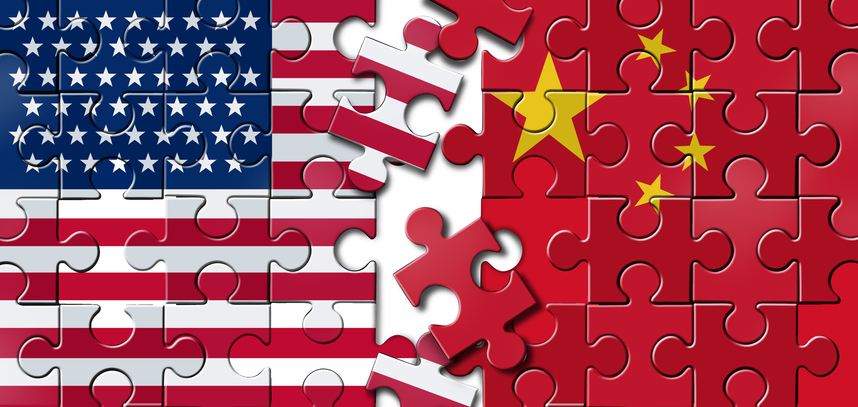The leading US journal Foreign Policy has just published an extended profile, written by Jonathan Landreth, of Professor Jerome A. Cohen, entitled: “The Last China Hand. Jerry Cohen will be 95 in July this year. The article lucidly explains how he “has spent a lifetime trying to understand the People’s Republic of China”.
I first met Professor Cohen around 30 years ago at the then new Law School at the City University of Hong Kong, where I had taken up a position in 1991. His calm erudition, deep understanding and natural charm immediately encouraged one to engage. I cannot remember the detail of what we spoke about. But I do know that that meeting prompted me, just when I needed prompting, to pay significantly more attention to China.
I remember another meeting in Hong Kong, around 15 years later, when Cohen, thinking aloud, wondered if China may need, looking forward, more firm and decisive leadership. This was during the period when Hu Jintao was China’s paramount leader. In 2011, Professor Kerry Brown summed up President Hu in a way that supported Jerry Cohen’s observation:
Hu’s reticence as a national leader, his lack of profile and ego, the things that have made him a successful Party secretary, are also the very things that inhibit him as a spokesperson or face of the new, emerging China. Even to Chinese, he can seem opaque, elusive and mysterious. Adding that: His likely successor, Xi Jinping, will have to be different.
The facts confirm that President Xi plainly understood the need to be different. He has proved to be visibly and consistently firm and decisive but not, as the Foreign Policy profile makes clear, in the way Jerry Cohen would have preferred.
Landreth explains in this new bio-essay that:
“Cohen is a product, in his words, of lower-middle-class New Jersey. He rose — after undergraduate and law degrees from Yale University — to clerk for Earl Warren, then chief justice of the Supreme Court, the man who, importantly, led the desegregation of US schools and, confoundingly, promoted the segregation of some 120,000 Japanese Americans during World War II. Cohen then taught at Berkeley, Harvard, and New York University and helped lawyers and Communist officials in China shape much of the country’s modern legal code. Along the way, he advised President Jimmy Carter, Sen. Ted Kennedy, General Motors, Amoco, and Daewoo, among others.”
The avuncular, bow tie-wearing Cohen — Jerry to his many friends — made it his life’s work to understand China well before Henry Kissinger’s secret visit to Beijing in 1971 that paved the way for the establishment of modern US-China relations. His new memoir, Eastward, Westward: A Life in Law, outlines a life of rigorous intellectual balance and is essential reading to understand the evolution of the world’s most important bilateral relationship.
In 1960, when few Western scholars were looking East, Cohen, then a young law professor at the University of California, Berkeley, started studying Mandarin and investigating the bones of Chinese law barely a dozen years after Mao Zedong declared the formation of a nation that, 75 years later, is the focus of a lot of fear in the West.
In March, 2023, Fareed Zakaria compared the paranoid decision making in Washington with respect to China, to the worst of the McCarthy era in the 1950s.
Cohen shares this concern:
The dominance of “yellow peril” fears after the loss of China and the Korean War is easy to forget. Kennedy and Johnson’s Secretary of State Dean Rusk’s saying that a billion Chinese with nuclear weapons were going to sweep over Southeast Asia was the voice that drove the US State Department view on China in the early 1960s, Cohen said.
Those worries have returned in the shape of “China peril” narratives today. “Unfortunately, there seems to be a widespread agreement on anything that says, ‘We’ll compete and beat China’ and ‘defend against China,’” said Cohen, trotting out what he and other moderate voices wish for from The Oval Office: “Cooperation, competition, criticism and, for balance, containment.”
Note the emphasis on the need to contain China. Professor Cohen maintains a core Liberal-American perspective on China, which encompasses a belief in the justifiable superiority of universal Western values and their US-led global maintenance. He notes that “legal technical progress” is being made in certain areas in China but he remains vigorously critical of China’s human right record:
Cohen says that Chinese companies’ well-documented deployment of North Koreans and Uyghurs in labor camp conditions belies Beijing’s claim that its record protecting human rights is good and improving.
“We don’t really know enough. They’re so good at hiding things that come out eventually, occasionally. It hasn’t improved,”
“I looked to [the late] Alexei Navalny and Russian cases as a contrast with China, because it showed me that Russia really is an authoritarian state but China is techno-totalitarian,” Cohen said. “China has a much greater degree of repression – much more effective than in Russia, but Russia is studying hard how China does it.”
It is not that there are no abuses of rights in China worthy of sharp criticism. The problem today is that, given this strong emphasis on the importance of respecting universal rights, it is surely impossible to ignore the massive, ongoing genocidal abuse of rights by Israel in Gaza – which is comprehensively supported by the US. Hundreds of thousands of Palestinians, mainly women and children, have been killed or maimed and their city has been largely levelled. Yet there is no mention of this primary, contemporary context involving an horrific abuse of rights. Any standing of the US, especially, to judge others on their abuse of rights has, for many, been eviscerated in Gaza.
I have differed once before with Professor Cohen. A radical decision by the High Court overturning a mask-wearing ban applied to those involved in continuous violent riots in Hong Kong in 2019 was fiercely criticised by Beijing. Cohen argued that these censorious mainland comments were plainly contrary to established case law. This view was misguided, I said. It was too fixated on protecting individual rights at the expense of the wider public interest and maintaining the public right to enjoy freedom from fear, during an extraordinary, multi-month insurrection.
But this is what serious lawyers do all the time. They disagree.
It is plain that Professor Cohen has spent a marvellous, highly informed lifetime firmly and appealingly assisting others, at all levels, in their understanding of China. We are in debt to Jonathan Landreth who has confirmed in this fine essay why Cohen is so widely recognised as a generous and genuinely inspiring scholar.
Richard Cullen is an Adjunct Professor in the Faculty of Law at the University of Hong Kong. He was previously a Professor in the Department of Business Law and Taxation at Monash University in Melbourne, Australia.

